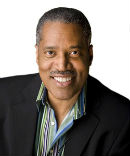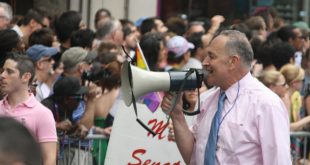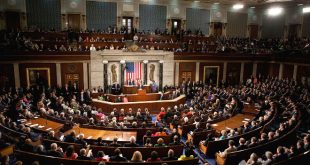 Rep. Maxine Waters, D-Calif., once falsely accused President Ronald Reagan’s CIA of all but causing urban cocaine dealing in the ’80s. She claimed that Reagan, by working with Nicaraguan drug dealers to defeat the communists running that country, colluded with them to created the urban drug epidemic. Never mind that The New York Times, The Washington Post and the Los Angeles Times all debunked Waters’ claim.
Rep. Maxine Waters, D-Calif., once falsely accused President Ronald Reagan’s CIA of all but causing urban cocaine dealing in the ’80s. She claimed that Reagan, by working with Nicaraguan drug dealers to defeat the communists running that country, colluded with them to created the urban drug epidemic. Never mind that The New York Times, The Washington Post and the Los Angeles Times all debunked Waters’ claim.
At a town hall meeting about these allegations, Waters shouted, “If I never do anything else in this career as a member of Congress, I’m gonna make somebody pay for what they’ve done to my community and to my people!” Yet as to “Politico’s” bombshell claim that in order to negotiate a nuclear deal with Iran, President Barack Obama allowed an Iran-funded Hezbollah terrorist/drug-dealing mastermind who worked for Russian President Putin to continue to operate. Yet Waters, who calls for President Donald Trump’s impeachment, has said absolutely nothing.
How desperate was Obama to negotiate a nuclear deal with Iran?
In his zeal not to offend Iran so he could complete the deal, Obama halted a George W. Bush administration investigation of drug and human trafficking by the Iran-funded terror group Hezbollah. According to “Politico,” the Obama administration angered investigators by interfering with and shutting down a well-funded and resourced Drug Enforcement Agency probe known as Project Cassandra.
In “The Secret Backstory of How Obama Let Hezbollah Off the Hook,” Politico senior investigator Josh Meyer wrote about the investigation the government called “Project Cassandra” and Ali Fayad, a Hezbollah operative suspected of, among other things, of using profits from drug-dealing to finance terror operations and to move weapons to Syria.
Meyer writes: “When Project Cassandra leaders sought approval for some significant investigations, prosecutions, arrests and financial sanctions, officials at the Justice and Treasury departments delayed, hindered or rejected their requests.
“The Justice Department declined requests by Project Cassandra and other authorities to file criminal charges against major players such as Hezbollah’s high-profile envoy to Iran, a Lebanese bank that allegedly laundered billions in alleged drug profits, and a central player in a U.S.-based cell of the Iranian paramilitary Quds force. And the State Department rejected requests to lure high-value targets to countries where they could be arrested. …
“Lebanese arms dealer Ali Fayad, a suspected top Hezbollah operative whom agents believed reported to Russian President Vladimir Putin as a key supplier of weapons to Syria and Iraq, was arrested in Prague in the spring of 2014. But for the nearly two years Fayad was in custody, top Obama administration officials declined to apply serious pressure on the Czech government to extradite him to the United States, even as Putin was lobbying aggressively against it.
“Fayad, who had been indicted in U.S. courts on charges of planning the murders of U.S. government employees, attempting to provide material support to a terrorist organization and attempting to acquire, transfer and use anti-aircraft missiles, was ultimately sent to Beirut. He is now believed by U.S. officials to be back in business, and helping to arm militants in Syria and elsewhere with Russian heavy weapons.
“Project Cassandra members say administration officials also blocked or undermined their efforts to go after other top Hezbollah operatives including one … of the world’s biggest cocaine traffickers, including to the U.S., as well as a major supplier of conventional and chemical weapons for use by Syrian President Bashar Assad against his people.”
Recall that last year, The New York Times reported that Obama’s point man on the Iran Deal, deputy national security adviser Ben Rhodes, pushed the Iran Deal by peddling a phony narrative that Iran’s “moderate” ayatollahs were battling the “hard-liners.” This nuclear deal to supposedly halt Iran’s march toward acquiring a nuclear bomb, Rhodes argued, and would strengthen the hand of the alleged moderates.
Among those who questioned the logic of this deal was none other than Obama’s first secretary of Defense, Robert Gates, who called it a “hope” that he considered “unrealistic.” Gates, who left the administration before Obama completed the deal, said, “I think that the pursuit of the agreement is based on the president’s hope that over a 10-year period with the sanctions being lifted that … they will abandon their ideology, their theology, their revolutionary principles, their meddling in various parts of the region. And, frankly, I believe that’s very unrealistic.”
All of this is jaw-dropping. Equally incredible is the major media indifference to this big story. In the days following Politico’s story, Fox News, the Wall Street Journal and the New York Post covered the story — but it was ignored by practically every other cable news and newspaper outlet. The story did not make the cut for the nightly newscasts of NBC, ABC and CBS, which still have a combined 20 million daily viewers.
Silent, too, was Congresswoman Waters. How many of these drugs ended up in the streets of America’s cities?
COPYRIGHT 2017 LAURENCE A. ELDER
DISTRIBUTED BY CREATORS.COM
Photo credit: mark6mauno (Creative Commons) – Some rights reserved
 Larry Elder is a bestselling author and radio talk-show host. To find out more about Larry Elder, or become an “Elderado,” visit www.LarryElder.com. Follow Larry on Twitter @larryelder.
Larry Elder is a bestselling author and radio talk-show host. To find out more about Larry Elder, or become an “Elderado,” visit www.LarryElder.com. Follow Larry on Twitter @larryelder.
The views expressed in opinion articles are solely those of the author and are not necessarily either shared or endorsed by Black Community News.
 CURE News and Clergy Blog News and Commentary for Christians
CURE News and Clergy Blog News and Commentary for Christians




Maybe Maxine’s funding comes from these drug dealers – follow her campaign money.
Born and reared in South LA, it remains a mystery how the crack epidemic seemingly took over the community. Authorities must have known where all of that dope was coming from and how it appeared (almost overnight) in one of America’s poorest communities.